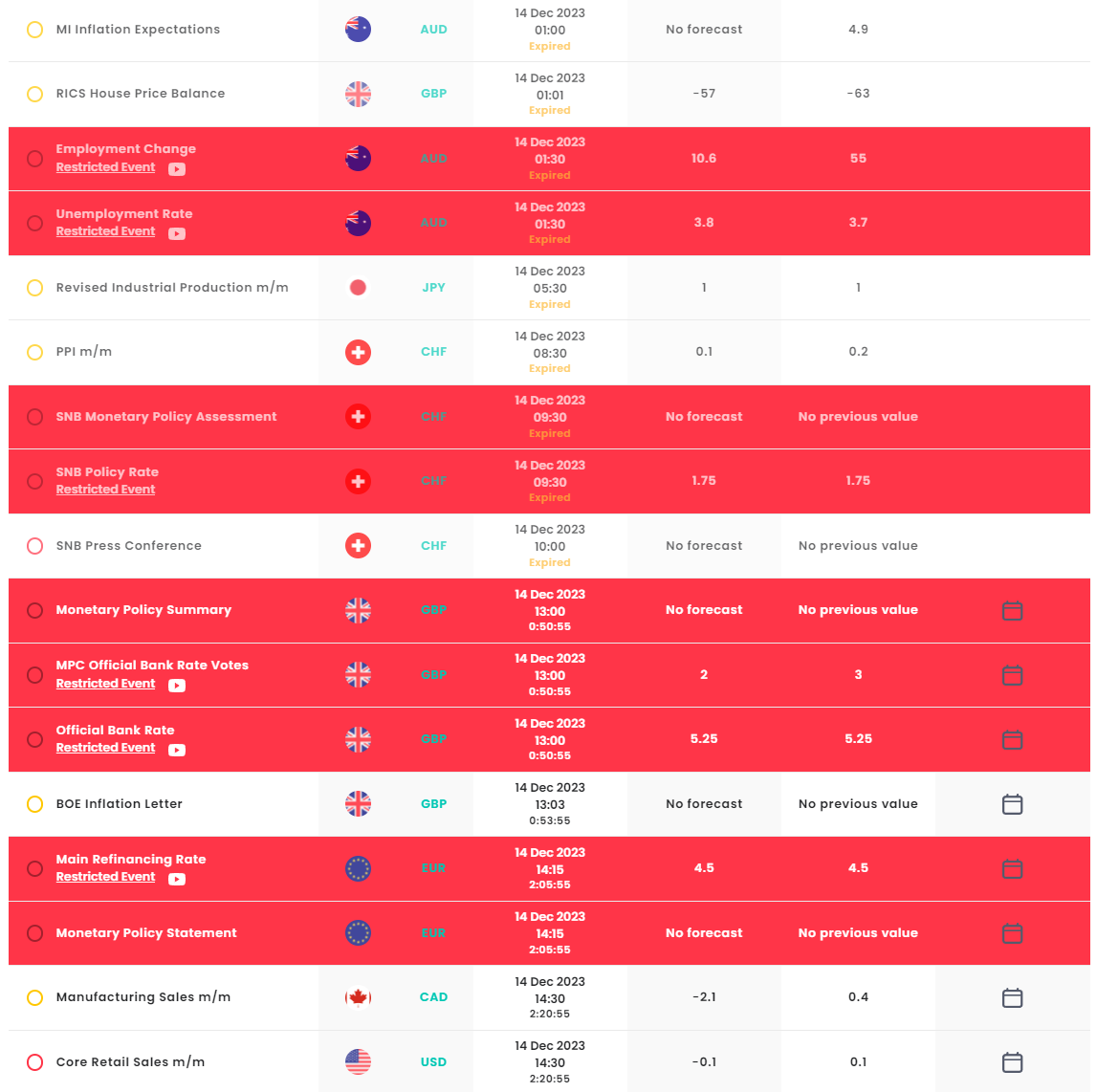
Why you shouldn't trade during macroeconomic news events
Trading at the time of news announcements is appealing to many traders because they feel it is an ideal way to make a lot of money in a short amount of time. Unfortunately, in most cases it ends in unnecessary losses. Why should you avoid trading during news announcements?
Although many traders may think that trading during news announcements can be a good way to make money quickly, this method is generally not recommended. This is because, especially for less experienced traders, there is a risk that they can lose their entire account very quickly. There are a number of pitfalls for traders during important news announcements that can easily be avoided by staying away from the markets during these periods.
News that moves the markets
Virtually every day, economic data is announced that can impact the markets. However, not all of it necessarily has a significant effect, and there are considerable differences. When placing orders, it's crucial to be particularly cautious of news expected to significantly influence the markets. Economic calendars on the Internet (including our calendar) typically highlight such news in red or with a specific designation.

These are usually the most important macroeconomic data that have the greatest impact on the economies of the countries concerned. These reports include:
Central bank interest rate decisions
Unemployment (NFP)
Purchasing Managers' Indices (PMI)
In addition to these reports, numerous other, less significant reports for each economy are announced throughout each day. Naturally, the impact of each report can vary, contingent upon expectations and whether the actual figure aligns with predictions or differs significantly. In certain cases, like the NFP in the US, it is advisable to refrain from trading on the day preceding the report, as the market typically experiences reduced activity in anticipation of the data.
A lot also depends on the timing of the news announcement. During impending recessions, news regarding inflation and unemployment holds greater significance compared to times when the economy is thriving. Moreover, statements from renowned economists or central bankers frequently prompt substantial market movements, particularly in uncertain market conditions when adjustments in monetary policy are anticipated.
Volatility and widened spreads
In essence, news announcements prompt increased volatility and wider spreads, often resulting in reduced liquidity at specific price levels due to rapid market shifts. This is a natural occurrence. If a broker assures you of guaranteed Stop Losses etc., it's most likely a standard market maker (b-book broker). Such brokers may not execute your orders in the market and might lack agreements with liquidity providers, often serving as the counterparty to your trades. This scenario inherently creates a conflict of interest, placing the client consistently at a disadvantage. Thus, when broker terms and conditions seem exceedingly favourable on the surface, they may hide potential risks, forming a dangerous trap for clients.
Unnecessary risk
The problem can also arise if you open an unnecessarily large trade in the expectation of a quick profit. It may well happen that such a large position in the market simply cannot be executed in a given time, and your trade will be executed at a much worse price than you originally wanted. The originally planned Stop Loss will then appear at a price level that does not make sense for you, and you will realize a loss immediately after opening the trade (due to the extended spread), or you will adjust the SL in a way that is never recommended (i.e. to a larger loss) and end up realizing a much larger loss than your risk management rules allow.
Restrictions that make sense
With our news rule, we try to prevent such misunderstandings by limiting the execution of trades during the announcement of selected macroeconomic news with a large impact on the markets. You can see which reports are affected and how this works in our calendar (where these selected reports are specially marked) or in our FAQ section.
The restriction is only valid for two minutes before and after the news announcement and applies to the instrument or currency selected, and trading within this window may be considered a violation of the FTMO Account Agreement. Keep in mind that similar to the Trading Objectives, which are designed to teach our traders to set up proper money management and risk management, the restrictions on news trading are designed to teach you to trade sensibly and not take unnecessary risk.
The exception is the swing account, which allows trading at the time of the news announcement. However, we have not allowed this because we would want you to open unnecessarily risky positions at that time. Rather, we are concerned that you are not "punished" for accidentally closing your position in a timeframe in which it should not be traded. This is because even that can happen if the price accidentally moves more than normal, and even a reasonably set Stop Loss level may not be enough.
We don't want to restrict our traders from trading, but if you do decide to trade around the time of macroeconomic news announcements, you should be aware of the risks you are taking and the impact it may have on your account. There are still plenty of opportunities in the markets even when no macro data is being announced, so why stress yourself unnecessarily at a time when the market conditions can threaten your hard-earned profits. Trade safe!
This article is for informational purposes only, and some information may not reflect the current service offering or product features. Please always verify the latest terms on the official product pages.
About FTMO
FTMO has developed a two-step evaluation process to find trading talents. Upon successful completion, you may be eligible for an FTMO Rewards Account with a balance of up to $200,000 in simulated funds. How does it work?













